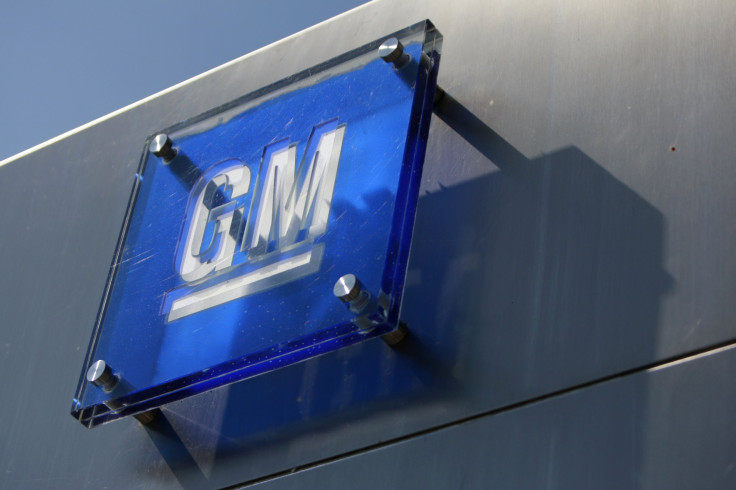GM Develops Contingency Plans In Case Takata Recalls Widen

(Reuters) - General Motors Co. has developed contingency plans in case recalls of potentially lethal Takata-made air bag inflators widens, forcing the U.S. automaker to repair millions of vehicles, the company said on Friday.
More than 21 million vehicles have been recalled globally by numerous automakers since 2008 because of defective Takata Corp. inflators that could rupture and shoot metal shards into the vehicle and have been linked to at least five deaths.
GM's plans include directing Takata to share with rivals TRW and Autoliv the No. 1 U.S. automaker's air bag specifications and data so any replacement parts made by others would work in GM vehicles, GM spokesman James Cain told Reuters in response to questions about the company's plans. This approach secures future capacity if it is necessary, he said.
"Basically, we bought an insurance policy so that the capacity is there if we need it," Cain said. "We don't want to be caught short-handed.
"There is only so much inflator capacity in the industry and we need to be prepared, so what we've done is prudent," he added.
While Takata has not determined what is causing the problems in its air bags involved in recalls in U.S. regions of high humidity, the company has said one factor is the aging of the inflators. That has many automakers concerned that inflators of similar design in their vehicles could face recall at a later date.
Takata said in a statement: “Takata cannot confirm or comment on discussions with particular customers. As our chairman has stated, Takata is increasing its production of replacement units and is committed to working with its customers and other air bag manufacturers to increase production capacity even further.”
Officials with Autoliv and TRW could not immediately be reached to comment.
Takata said this month it would boost capacity to build replacement inflators at its Monclova, Mexico, plant by almost a third in January to 450,000 a month, but some automakers do not want to wait for that to come through.
Takata's largest customer, Honda Motor Co., said this month that it had signed a deal to have Autoliv begin making replacement parts in about six months and the Japanese automaker also said it had opened talks with inflator maker Daicel Corp.
Analysts who follow the air bag industry have said the Japanese safety equipment maker has seen some shift of future contracts to rivals and any such move by GM, Takata's third-largest customer, would hurt the supplier. Cain, however, declined to discuss the automaker's future business.
BMW last month disclosed that Takata would shift inflator production for the German automaker's vehicles to the Japanese firm's plant in Germany.
On Friday, Nissan Motor Co. Chief Executive Carlos Ghosn told reporters at the company's Yokohama, Japan, headquarters it was too soon to talk about future sourcing of air bags. He declined to comment on Takata's response to the recall crisis.
GM has had no incidents related to the latest recalls in U.S. regions of high humidity nor any indication that any vehicles are affected other than the small number of Pontiac and Saab vehicles already recalled, Cain said.
Any widening of the Takata recalls could potentially affect millions of GM vehicles with Takata air bags, including the GMT 900 full-size pickup trucks - the Chevrolet Silverado and GMC Sierra - and related SUVs, the automaker said.
The GMT 900 trucks were launched in 2006 and GM built more than 6.5 million. GM switched over to redesigned versions of the pickup starting in May 2013 and the SUV early this year.
© Copyright IBTimes 2024. All rights reserved.











